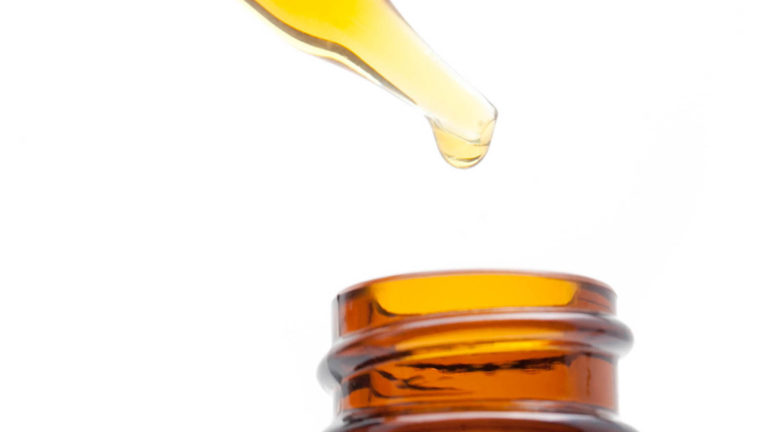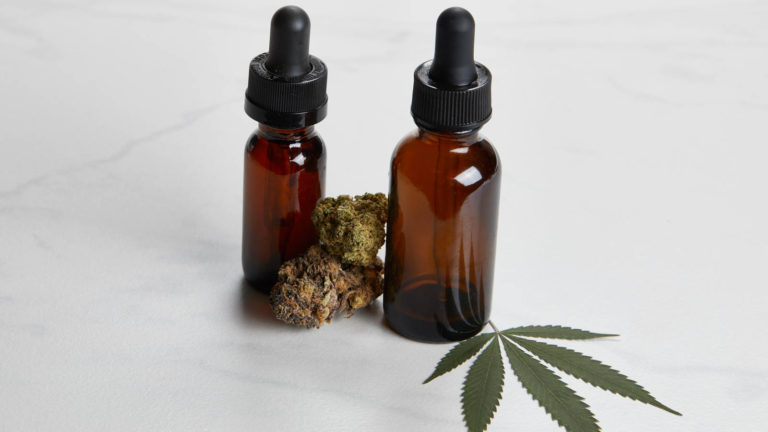CBD oil is currently under scrutiny and subject to strict regulation in Washington. The state recently banned the use of hemp-derived CBD in food and beverage products following current guidelines from the U.S. Food and Drug Administration. As of October 2019, CBD cannot be used as an ingredient in foods or beverages, under federal and state law. CBD oil which contains more than 0.3% THC must be sold in licensed cannabis dispensaries.
Washington was one of the first states in the country to legalize cannabis. Medical marijuana has been legal in Washington since 1998. Adult-use marijuana was legalized in 2012 with the passing of Initiative 502, also known as the Washington Marijuana Legalization and Regulation Initiative.
What is CBD?
CBD is the second-most prominent cannabinoid found in cannabis following THC. Unlike THC, which produces a high, CBD is non-intoxicating. CBD also contains a host of potential therapeutic benefits, including anti-anxiety, analgesic, anti-inflammatory, and seizure suppressing properties.
 Photo by: Gina Coleman/Weedmaps
Photo by: Gina Coleman/WeedmapsImage lightbox

Why is CBD sometimes illegal?
All types of cannabis, including hemp strains that don't produce enough THC to cause intoxication, were considered illegal under the Federal Controlled Substances Act of 1970. The law categorized all cannabis as Schedule 1, which defined the plant as a highly addictive substance with a high potential for abuse and no accepted medical use.
The 2018 Farm Bill re-classified hemp as an agricultural commodity, and made its cultivation federally legal. Further, the act removed some forms of cannabis from Schedule 1 status by creating a legal distinction between hemp and marijuana. Hemp is cannabis with less than 0.3% THC, and marijuana refers to cannabis with more than 0.3% THC. This distinction in federal law effectively legalized CBD that is derived from cannabis with less than 0.3% THC, as long as it's been cultivated according to federal and state regulations.
The 2018 Farm Bill legislation does not mean that CBD derived from hemp is universally legal throughout the United States. According to the Farm Bill, the Food and Drug Administration (FDA) has the power to regulate CBD product labeling, including therapeutic claims and the use of CBD as a food additive. The FDA has already maintained that even hemp-derived CBD may not legally be added to food and beverages, or marketed as a dietary supplement. Although the organization has begun to re-evaluate some of these stances on legal CBD products, the FDA has not revised its regulations. The agency also has been strict in its stance against any labeling that could be perceived as a medical claim about CBD.
In addition to federal regulation of CBD, the Farm Bill also gave states the option to regulate and prohibit the cultivation and commerce of CBD. States may also regulate CBD in food, beverages, dietary supplements, and cosmetic products independently, even before the FDA finalizes its policies. Washington is an example of a state that has devised its own regulatory framework for CBD.
Washington CBD laws
With the passing of the 2018 Farm Bill, an influx of CBD-infused products hit the Washington market. In October 2019, Washington banned the sale of hemp-derived CBD in food and beverage products in line with current policies from the U.S. Food and Drug Administration.
While the ban is recent, and the state hasn't made any attempts to penalize or prosecute retailers or CBD brands, representatives of the Washington State Department of Agriculture (WSDA) are actively working to remove these products from shelves. The WSDA recently released a statement outlining their stance on CBD in food and as a medicine.
Although food containing CBD is not permitted to be created or sold in Washington, WSDA-licensed food processors can use other hemp products in foods. These foods include hulled hemp seeds, hemp seed protein powder, and hemp seed oil, provided they comply with all other requirements. Topical products containing CBD are also still available for purchase from retailers.
 Photo by: Gina Coleman/Weedmaps
Photo by: Gina Coleman/WeedmapsImage lightbox

CBD oil containing more than 0.3% THC is available, but can only be sold and purchased in licensed cannabis dispensaries. Consumable CBD products can now only be sold only in licensed retail marijuana dispensaries.
Licensing requirements for CBD
Currently, anyone intending to grow, process, or market industrial hemp must apply for a license through the Industrial Hemp Research Pilot program (IHRP). The program recently combined the separate application forms into one universal application to simplify the process and reduce the amount of supporting documentation necessary to apply for a license.
In the wake of the 2018 Farm Bill, the Department of Agriculture issued a new policy statement on the transition from the IHRP to the implementation of a commercial hemp program that conforms to federal rules and revised state laws. The most notable changes to the updated hemp program include:
- Licensed growers are solely responsible for procuring hemp seed and must notify the IHRP of the source of the seed.
- Licensed growers are no longer required to maintain the four-mile minimum buffer distance from a licensed marijuana grower.
- IHRP grower license requirements have been simplified to align with new hemp plan requirements.
When the new hemp program is adopted, those already licensed to grow hemp under the IHRP may transfer.
All industrial hemp must contain less than 0.3% THC when tested. According to the WSDA, any industrial hemp field, greenhouse or harvest that tests over 0.3% no longer meets the definition of industrial hemp under the law. The IHRP is currently considering the most appropriate enforcement actions.
Washington CBD possession limits
Consumers are allowed to purchase or possess up to one ounce of marijuana, 16 ounces of marijuana-infused CBD edibles in solid form, and 72 ounces of marijuana-derived CBD liquids.
 Photo by: Gina Coleman/Weedmaps
Photo by: Gina Coleman/WeedmapsImage lightbox

Possession above the legal limits is a criminal offense. There is no penalty articulated specifically for those with excess quantities of marijuana-derived CBD edibles or liquids. However, possession of one ounce to forty grams of cannabis is treated as a misdemeanor. Those charged will receive a prison sentence of up to 90 days and a maximum fine of $1000.
The possession of more than forty grams of cannabis is treated as a felony, resulting in a minimum of 5 years imprisonment and a maximum fine of $10,000.
Where to buy CBD in Washington
Currently, CBD is banned in the use of dietary supplements, food, and beverage products in the state of Washington. At present, the WSDA is not performing raids, so many of these products remain on the shelves at retailers, such as grocery stores and coffee shops.
The ban does not affect CBD products sold at licensed dispensaries, where shoppers can find and purchase products containing CBD, including CBD oil and edibles. There are benefits to buying CBD oil and other CBD products directly from a licensed retailer, such as immediate access to a product and the knowledge that it conforms to legal requirements.
Consumers can shop from a wide variety of online outlets for CBD products, read consumer reviews, and ship purchases to their homes. Online shopping also offers the ability to gather detailed information about each product, compare different products and product types, and comparison shop to find the best price. CBD brands also often have their own e-commerce shop, allowing you to purchase your desired CBD products straight from the source. Products purchased online, however, are unlikely to be in line with Washington state legal requirements.
How to read CBD labels and packaging
The 2018 Farm Bill shifted oversight of CBD from the U.S. Department of Justice (DOJ) to the U.S. Food and Drug Administration (FDA). At present, there are no clear regulations regarding CBD labels and packaging.
Although the regulations are in flux, companies selling CBD must still make legitimate claims on their labels. Reputable CBD producers will typically include the following information on their CBD product labels.
- Amount of active CBD per serving.
- Supplement Fact panel, including other ingredients.
- Net weight.
- Manufacturer or distributor name.
- Suggested use.
- Full spectrum, broad-spectrum, or isolate.
- Batch or date code.
This information helps the consumer to make an educated decision on the quality and efficacy of a CBD product. If this information is absent from the label, it's best to look for an alternative product.

